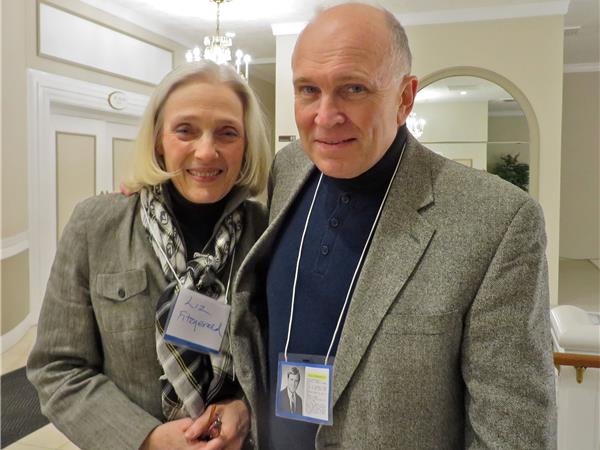He received his bachelor's and master's
degrees from the American University in Beirut and his doctorate degree from the
University of Chicago where he met and studied along with Paul Wolfowitz under
the RAND nuclear warfare theorist, former Trotskyite and father of
neoconservatism, Albert J. Wohlstetter.
It was Wohlstetter's early 1970s series of articles in the Wall Street Journal and Strategic Review that prompted the politicized CIA analysis known as the Team B experiment. It was the Team B's adherents both inside and outside the Carter administration who set the stage for undermining dà �tente and luring the Soviets into the Afghan trap and holding them there while Afghanistan disintegrated. And it was the same Team B brain-trust of Wohlstetter acolytes, including Khalilzad, that went on to provide the philosophical template for the politicized intelligence process that led to the strategic military disasters of Iraq and Afghanistan.
In her 1972 book about Vietnam, Fire in the Lake, author Frances FitzGerald wrote of the perverse illogic of another of Wohlstetter's one-time RAND protà �gà �s, Herman Kahn. "Just before his departure for a two-week tour of Vietnam in 1967, the defense analyst, Herman Kahn, listened to an American businessman give a detailed account of the economic situation in South Vietnam. At the end of the talk an argument for reducing the war Kahn said, 'I see what you mean. We have corrupted the cities. Now, perhaps we can corrupt the countryside as well.' It was not a joke. Kahn was thinking in terms of a counterinsurgency program: the United States would win the war by making all Vietnamese economically dependent upon it. In 1967 his program was already becoming a reality, for the corruption reached even to the lowest levels of Vietnamese society."
In a country as poor as Afghanistan after three decades of war it took little time and less effort to corrupt every level of Afghan society, but in Afghanistan, official corruption, both American and Afghan was built in. Overseen by Khalilzad, a bizarre marriage of America's pro-business, neoconservative Washington and Afghanistan's pro-business and often pro-Taliban right wing took root to direct and guide Afghanistan's reconstruction.
A 2007 report by Canadian journalist Arthur Kent described the DNA that coursed through the bloodstream of the Bush administration's Afghan agenda. Kent writes, "Within Khalilzad's makeshift provisional authority in Kabul, he championed a creation called the Afghanistan Reconstruction Group. ARG, achieved two cherished goals for the administration: putting a select group of loyal American and Afghan-American business hawks in charge of US-funded development projects; and doing so while completely bypassing the State Department."
Outside the boundaries of normal oversight procedures while under the auspices of Donald Rumsfeld's office at the Pentagon, ARG became a watering hole of high priced contracts for well-placed friends of the Bush administration. In 2005, when Khalilzad's successor, career diplomat Ronald Neuman tried to break up ARG and return contracting to the State Department, Khalilzad arranged for a "political audit." The result was Neuman's replacement by the White House.
In a U.S. Congressional report published
in June 2010 titled Warlord,
Inc., Representative John F. Tierney's Subcommittee on
National Security and Foreign Affairs painted a sordid picture of the chaos,
deception and corruption in Afghanistan that now stands as the legacy of
America's neoconservative brain trust. But given the history of America's covert
and overt involvement in Afghanistan, none of this should have come as a
surprise.
The U.S. fostered destabilization of Afghanistan's governments in the 1970s, backed Pakistan's ISI and their Islamist protà �gà �s, lured the Soviets to defeat and watched as the country descended into anarchy. It then hatched a Frankenstein movement called the Taliban together with the ISI all the while pretending it was indigenous to Afghanistan. After 2001 it then allowed the movement to regroup and grow stronger as they slaughtered moderate Pashtuns and claimed the mantle of Pashtun nationalism for themselves. Whatever the future holds for Hamid Karzai, President Obama's AfPak war was built upon a chaos, designed and programmed from its inception by the highest intellectual circles in the United States. As his administration approaches another winter trying to resolve it, it might as well face up to the fact that whether it likes it or not, it is getting exactly the chaos that it asked for.
From Boiling Frogs Post
(Note: You can view every article as one long page if you sign up as an Advocate Member, or higher).





